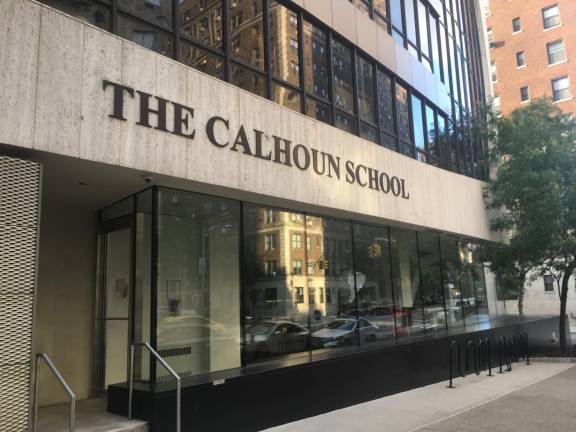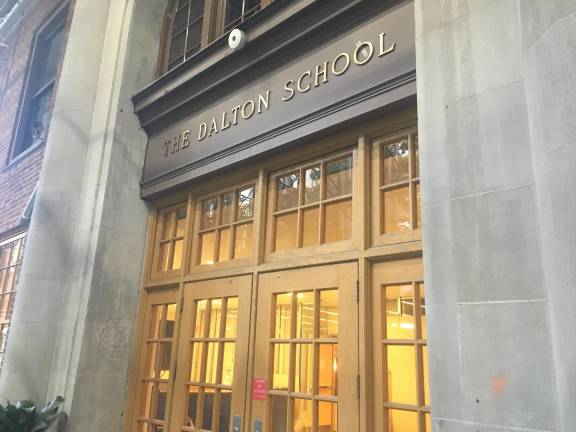By Jaden Satenstein
Although schools may be closed for the summer, emails from private school officials have caused mass confusion among parents throughout the city over the last few weeks. The message of the emails is clear: They should publicly oppose recently proposed regulations from the New York State Education Department (NYSED) that many independent schools are vehemently fighting.
However, exactly what those regulations would mean for private schools and their students is far less clear.
The proposal would require non-public schools to report to local public school officials and mandates that the schools be reviewed regularly to determine if they are meeting the standards set by Section 3204 of New York Education Law. The law requires that non-public schools provide students with instruction that is “substantially equivalent” to that given in State public schools.
The regulatory changes stem from growing concerns that certain private schools, specifically ultra-Orthodox Yeshivas, are not meeting legal standards of non-religious instruction, such as the proper teaching of math and English.
A Bad Education
“I experienced this poor secular education firsthand, and then when I was interested in pursuing a degree, only then did I even realize how bad my education was,” said Naftuli Moster, a Yeshiva alum and the Executive Director of Young Advocates for Fair Education (YAFFED).
YAFFED submitted a formal complaint to the New York City Department of Education (DOE) in July of 2015, outlining 39 city Yeshivas that the 52 signatories claimed to be providing insufficient secular education. Following the complaint, the DOE launched an “inquiry” into the schools.
“Simple things that people know from high school, from elementary school, come up in conversation all the time and I just have to nod my head along and pretend I know what they’re talking about,” Moster said. “It’s something that stays with us for the rest of our lives and that’s just not fair, and it’s unacceptable.”
NYSED believes that the additional oversight will ensure that standards are being met.
Enforcing the Law
“Every child in New York State is entitled to a high-quality education,” Board of Regents Chancellor Betty A. Rosa said in a NYSED press release in May. “By proposing these regulations, we are moving through the public process to ensure that students attending nonpublic schools receive substantially equivalent instruction. We remain steadfast in our commitment that all New York’s children leave school with the knowledge they need to succeed in life.”
Not all those in the education community share Chancellor Rosa’s sentiment.
To officials at the New York State Association of Independent Schools (NYSAIS), the proposed regulations would add an unnecessary and invasive element of government oversight to their 196 accredited member schools, which include notable New York City institutions such as the Dalton School and Horace Mann School.
Protecting Independence
“The proposed regulations subordinate the curricular and staffing authority of the independent and religious school’s Board of Trustees to the local, public school board of education,” NYSAIS Executive Director Mark W. Lauria wrote in a statement to Straus News. “Using a political, local school board that has no direct authority over nonpublic schools, to make the final determination about the nonpublic schools’ compliance with substantial equivalence undermines the independence and authority of the independent school’s board of trustees.” Lauria argues that since NYSAIS’ accreditation process, which recurs every five years, already requires schools to meet Section 3204 of New York Education Law’s “substantially equivalent” instruction guidelines, NYSAIS schools should be exempt from the regulations.
NYSAIS also argues that, because they are chartered by the New York State Board of Regents, they should be exempt from the additional oversight outlined in the proposal.
Now, many heads of NYSAIS schools are encouraging their communities to review the proposal and submit a public comment echoing Lauria’s sentiment. They are communicating with parents and alumni through email, because students are out of school for summer break during the public comment period set by NYSED, which ends on September 2nd.
A Possible Loophole
For his part, Moster argues that exempting schools accredited by NYSAIS and other organizations poses a dangerous risk. “At the moment, what NYSAIS is proposing is not sufficient because it guarantees a loophole for bad actors. How? Because, what do you think will happen next? Yeshivas will form their own ‘accreditation agencies,’” Moster said. “We can’t have a carve-out.”
Despite those concerns, Moster suggested that, if the new regulations go into effect, the high standards required to receive NYSAIS accreditation be taken into consideration when NYSAIS schools are reviewed.
Questions Yet to Be Answered
The fate of the proposal now lies in the hands of the Board of Regents, which will make its final consideration in the fall.
To Emily Glickman, President of Abacus Guide Educational Consulting, which has advised families on New York City private school admissions for over 20 years, the conflict raises the question of whether or not more government involvement in independent schools would lessen their quality or appeal to both current and prospective families.
“The question that remains to be seen is, would state oversight hurt private schools’ ability to serve their students?” Glickman said. “The private schools are suggesting that if the government gets involved, that’s a problem. But certainly in the case of certain very religious schools or certain schools where academics is not a priority, State oversight would be a great thing.”

